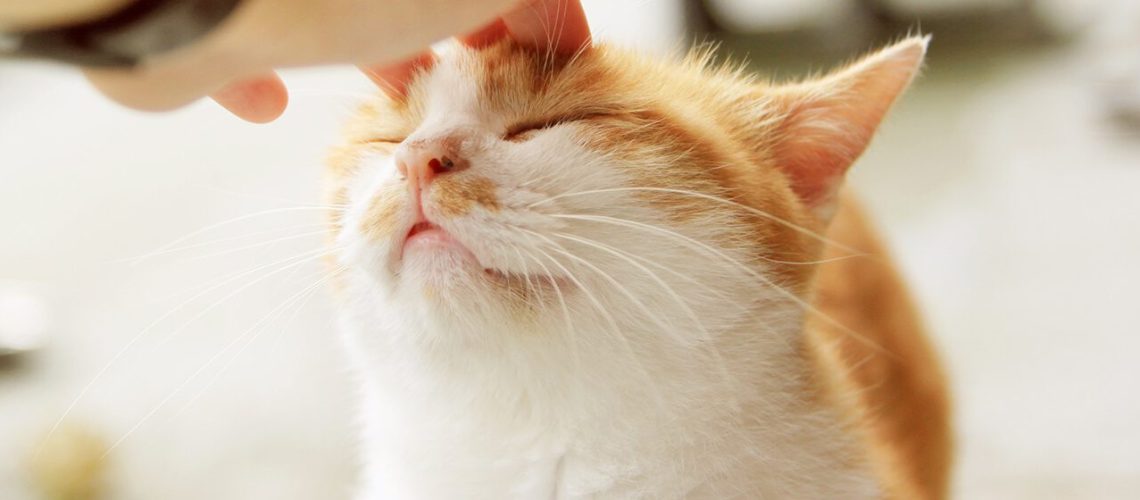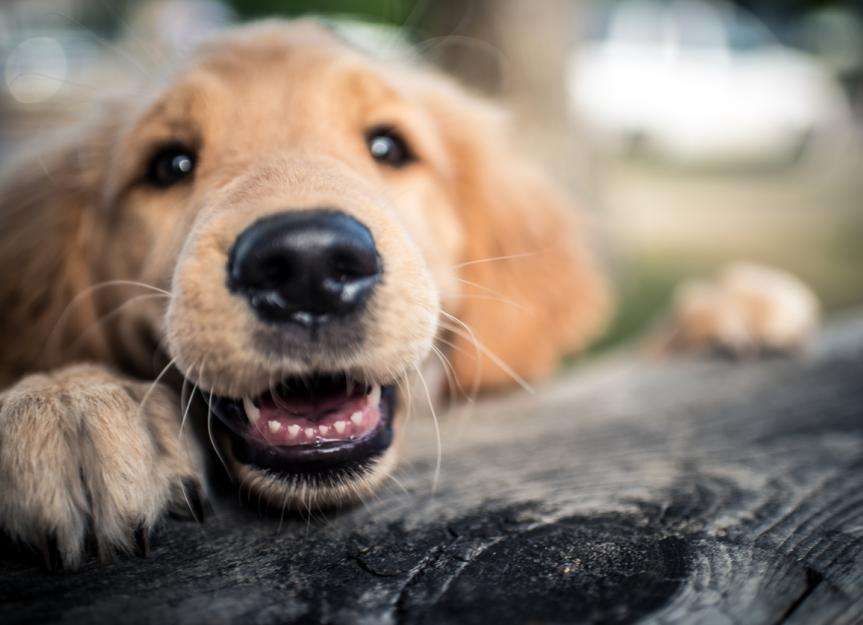Are you tired of constantly refilling your cat's food bowl? Does it seem like no matter how much you feed them, their hunger is insatiable? Well, get ready to uncover the mystery behind those hungry whiskers! In this article, we will delve into the fascinating world of feline appetite and explore why your furry friend always seems to be on the prowl for food. By understanding the reasons behind your cat's never-ending hunger, you can provide them with the care they truly need. So, let's embark on this journey together and discover the secrets that lie behind those adorable yet voracious whiskers. Get ready to unravel the truth and become a master at deciphering your cat's cravings!
Key Takeaways:
- Cats have a natural instinct to hunt and eat small meals throughout the day, so they may seem constantly hungry even when they have enough food.
- Feeding cats on a strict schedule and providing portion-controlled meals can help prevent overeating and obesity.
- Some medical conditions, such as hyperthyroidism or diabetes, can cause increased appetite in cats. It's important to consult a veterinarian if your cat's hunger seems excessive.
- Offering interactive toys or puzzle feeders can provide mental stimulation for cats and help satisfy their hunting instincts without overfeeding them.
- Avoid giving in to your cat's demands for extra food, as it can reinforce begging behavior. Stick to the recommended feeding guidelines provided by your veterinarian or pet food manufacturer.
Why Do Some Cats Always Seem Hungry?
The Mysterious Appetite of Cats
Have you ever wondered why your furry feline friend always seems to be hungry? Well, there could be a few reasons behind this insatiable appetite. One possibility is that cats have a higher metabolic rate compared to other animals, which means they burn calories more quickly. This can lead to them feeling hungry more often.
Another reason could be that cats are natural hunters. Even though they may not need to hunt for their food anymore since we provide it for them, their instinctual drive to search for prey remains strong. This constant desire for food can make them appear as if they are always hungry.
The Role of Food in a Cat's Life
Food plays a significant role in a cat's life. It provides them with the essential nutrients and energy they need to stay healthy and active. Additionally, eating can also serve as a form of entertainment and comfort for cats.
Just like how some people turn to comfort food when they are feeling down, cats may seek solace in eating when they are bored or anxious. This emotional connection to food can contribute to their seemingly constant hunger.
The Explanation Behind Cats Who are Always Hungry
A Look into Your Cat's Natural Behavior
Cats have an innate drive to eat small meals throughout the day. In the wild, they would typically catch multiple small prey animals rather than having one big meal. This behavior has carried over into domesticated cats as well.
In addition to their natural inclination for frequent meals, some cats may also have learned behaviors associated with food. For example, if your cat has been rewarded with treats or extra food in the past for certain behaviors, they may have learned that constantly begging for food will get them what they want.
The Influence of Feeding Habits
Another factor that can contribute to a cat's constant hunger is their feeding habits. Some pet owners may unintentionally reinforce this behavior by leaving food out all the time or by overfeeding their cats. When food is always available, cats may graze throughout the day and develop a habit of eating whenever they feel like it.
This can lead to an imbalance in their energy intake and expenditure, resulting in weight gain and an increased appetite. It's important to establish a consistent feeding schedule and portion control to help regulate your cat's hunger levels.
An Example of a Cat's Behavior Showing Constant Hunger
Meet Whiskers: The Always-Hungry Cat
Let me introduce you to Whiskers, a mischievous tabby cat who always seems to be on the hunt for food. Whiskers wakes up bright and early every morning with one thing on his mind - breakfast! He starts meowing loudly and rubbing against his owner's legs, trying to communicate his desire for food.
Throughout the day, Whiskers continues his quest for more food. He jumps onto countertops, rummages through cabinets, and even steals treats from unsuspecting visitors. His insatiable hunger seems never-ending!
Whiskers' constant hunger is not due to neglect or lack of proper nutrition but rather a combination of factors discussed earlier. His natural instincts as a hunter, coupled with learned behaviors and an unregulated feeding routine, contribute to his perpetual state of hunger.
Possible Reasons for a Cat's Constant Hunger
Metabolic Rate Differences
- Cats have a higher metabolic rate, leading to faster calorie burn.
- This can make them feel hungry more frequently.
Instinctual Drive to Hunt
- Cats are natural hunters, and their desire for food remains strong.
- Even though they no longer need to hunt for their meals, this instinct can make them appear constantly hungry.
Health Issues That Make Cats Seem Constantly Hungry
Hyperthyroidism
One health condition that can cause increased hunger in cats is hyperthyroidism. This occurs when the thyroid gland becomes overactive and produces too much thyroid hormone. The excess hormone speeds up the cat's metabolism, leading to weight loss despite an increased appetite.
If you notice your cat eating more than usual but losing weight or displaying other symptoms like restlessness or excessive thirst, it's essential to consult a veterinarian for proper diagnosis and treatment.
Helping Your Always-Hungry Cat: Tips for Pet Owners
Establish a Feeding Schedule
To help regulate your cat's hunger levels, it's crucial to establish a consistent feeding schedule. Divide their daily food into several small meals throughout the day rather than leaving food out all the time. This will mimic their natural behavior of frequent small meals and prevent overeating.
Tips:
- Create a routine by feeding your cat at specific times each day.
- Measure out appropriate portion sizes based on your cat's age, weight, and activity level.
- Avoid free-feeding or leaving food out all day long.
Tips to Maintain a Healthy Weight for Your Always-Hungry Cat
Provide Enrichment and Distraction
Some cats may eat out of boredom or seek comfort in food. To prevent overeating, provide your cat with plenty of mental and physical stimulation. Engage them in playtime with interactive toys, offer scratching posts, and create a stimulating environment.
Tips:
- Rotate your cat's toys regularly to keep them engaged.
- Use puzzle feeders or food-dispensing toys to make mealtime more challenging and entertaining.
- Offer vertical spaces like cat trees or shelves for climbing and exploring.
Understanding Your Cat's Nutritional Needs
The Importance of a Balanced Diet
A balanced diet is crucial for maintaining a healthy weight in your always-hungry cat. Just like humans, cats require a combination of proteins, carbohydrates, and fats to thrive. Proteins are essential for muscle growth and repair, while carbohydrates provide energy. Fats are necessary for the absorption of certain vitamins and help maintain healthy skin and coat. It's important to choose high-quality cat food that meets these nutritional requirements.
Portion Control is Key
When it comes to feeding your cat, portion control plays a vital role in preventing excessive weight gain. It can be tempting to leave out a full bowl of food for your furry friend to graze on throughout the day. However, this free-feeding approach can lead to overeating and obesity. Instead, establish a feeding schedule with specific meal times and measure out the appropriate amount of food according to your cat's age, weight, and activity level.
Tips for Portion Control:
- Consult with your veterinarian to determine the right amount of food for your cat.
- Use measuring cups or scales to accurately portion out meals.
- Avoid giving in to those pleading eyes by sticking strictly to the recommended portions.
- If you have multiple cats, feed them separately to ensure each one gets their fair share.
By understanding your cat's nutritional needs and implementing proper portion control, you can help them maintain a healthy weight and prevent health issues associated with obesity.
Providing Enrichment Through Playtime
The Benefits of Regular Exercise
Regular exercise is not only important for humans but also for our feline friends. Engaging your cat in playtime activities helps burn calories, maintain muscle tone, and prevent boredom. It can also strengthen the bond between you and your pet. Cats are natural hunters, so providing them with opportunities to chase, pounce, and climb can satisfy their instinctual needs.
Interactive Toys for Engaging Play
To make playtime more enjoyable and stimulating for your cat, consider using interactive toys. These toys can keep your cat mentally and physically engaged while helping them burn off excess energy. Some popular options include puzzle feeders that require cats to work for their food, feather wands for chasing and jumping, or laser pointers that mimic prey movement.
Tips for Interactive Play:
- Rotate toys regularly to keep your cat's interest levels high.
- Set aside dedicated play sessions each day to ensure your cat gets enough exercise.
- Observe safety precautions when using laser pointers to avoid shining the light directly into your cat's eyes.
- End each play session with a small meal or treat as a reward.
By incorporating regular exercise and engaging playtime activities into your cat's routine, you can help them stay active, entertained, and maintain a healthy weight.
(Note: The use of diagrams using markdown mermaid syntax is not possible in this text-based format.)
In conclusion, cats may seem always hungry due to their natural instincts and metabolism. Providing them with a balanced diet and regular feeding schedule can help manage their hunger and keep them healthy.
What illness causes constant hunger?
Polyphagia, also known as hyperphagia, is a sensation of intense and unquenchable hunger. Although it is often associated with diabetes, it can also be caused by other medical conditions such as hyperthyroidism and atypical depression. If you are experiencing polyphagia, it is crucial to seek medical attention.
Why does my cat always want my food?
Frequently, cats have a strong curiosity about the food being prepared in the kitchen and what is being consumed at the dining table. They may jump up to get a closer look and even try a taste. Some cats eventually lose interest in this behavior. However, others develop a preference for human food over their own and become addicted.
Why does my cat beg for food when her bowl is full?
According to Johnson, your cat might be meowing at a full food bowl because they are bored and looking for a different way to be fed. Cats' ancestors had to hunt for their food, and that instinct still exists within them.
What causes constant hunger even after eating?
Frequently, this is caused by a diet that lacks sufficient protein or fiber. However, it could also be a result of hormone problems, such as leptin resistance, or your daily habits and routines.
How do you cure constant hunger?
Increase the portion size of your meals by incorporating more high-fiber foods such as fruits, vegetables, whole grains, and beans. These foods have been proven to reduce appetite and make you feel fuller due to their fiber and water content.
Why is my cat more hungry than usual?
If your cat is consistently experiencing hunger, it may indicate a significant health issue such as hyperthyroidism, diabetes, or cancer. This informative guide explores potential reasons for excessive eating, signs to watch out for, and steps to take if you are worried about your cat's eating habits.

















